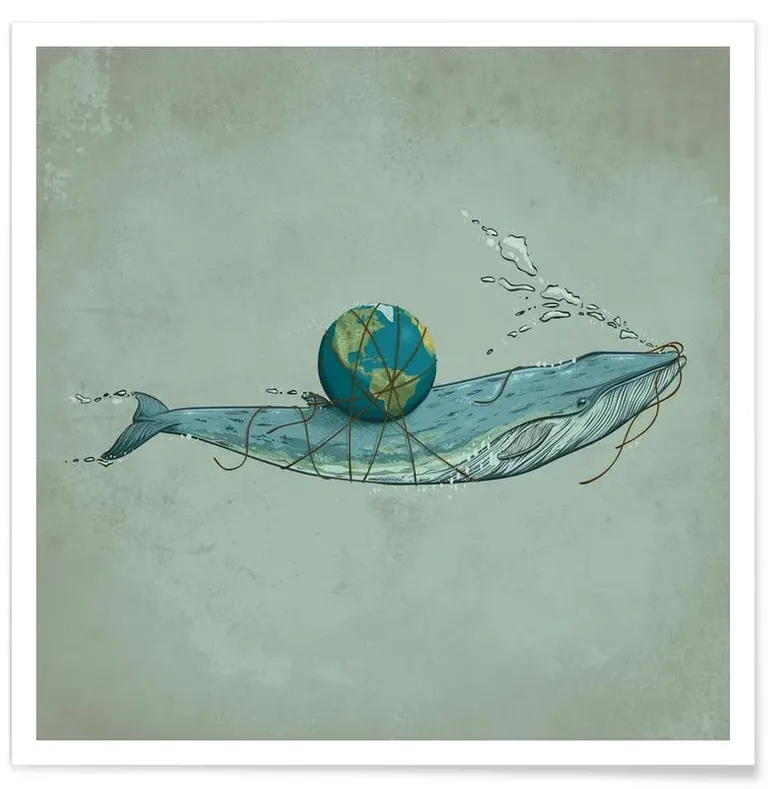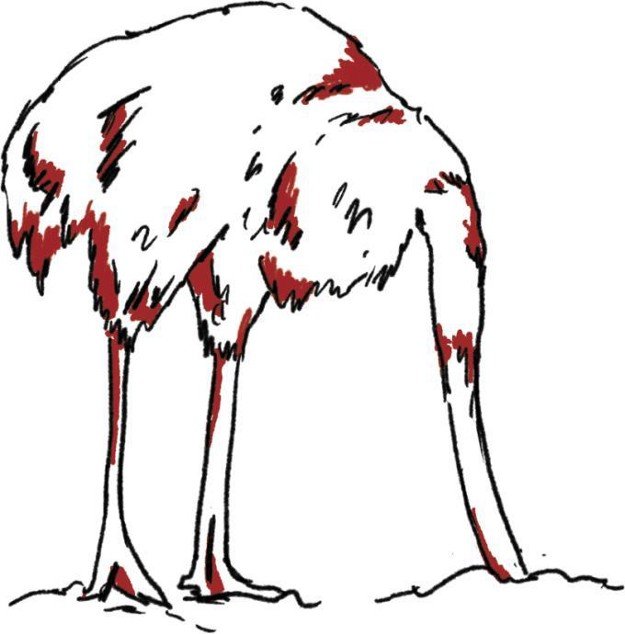
I myself have lived in denial for a long time. Not what science has been telling us for decades, but what global warming means for my identity, life and future. I was like an alcoholic who by now acknowledged that he had a problem, but each time told himself that next week he would really do something about it.

The result: a somewhat uneasy feeling of discomfort, of ever-receding self-esteem. To deal with this, I did my very best on a daily basis to suppress this feeling and avoid uncomfortable climate information. 'I can go on like this for a while,' I often thought to myself. 'I don't really need to change, just some sustainable adjustments here and there. Other people will solve the problem.'
But over time, cracks began to appear in my harness of invincibility and the feeling of discomfort gave me a type of heavy and oppressive sense. I realized that I could no longer go on like this, that I no longer should deny what I really felt. I could no longer avoid it. It was time to break through my own emotional denial.
At first, I did this by freeing myself from my strategic ignorance. In recent years I have more or less forced myself to learn about the ecological crisis. Not only the current state of affairs but especially the future scenarios. Also those doomsday scenarios.
That was certainly not always fun and very confronting. I have had to make significant adjustments to my view of the future and regularly experienced feelings of fear, anger and grief. But at the same time, something else started to grow in me, a different consciousness. A deep realization that my life does not only consist of working on the checklist 'house, wife, children, career', but that there is an even bigger task that's dawning on the horizon, namely: defending our natural environment, for myself, my son and daughter, my family and anyone else.
That may sound a bit bombastic. And that's how it sometimes feels when I say this out loud. But it really is what it comes down to. Precisely because of the climate crisis, for the first time in my life, I really became aware of what the essence is. I really started to appreciate what I often paid little attention to: we are totally dependent on nature. To illustrate: nowadays I (usually) prefer to walk through a forest than standing in a pub. Who would have thought?
American psychologist Margaret Klein Salamon, who has written extensively about the transformative power that comes with really emotionally engaging with the painful climate truth, describes this transformation very nicely:
My grief enabled me to remember my connection to all life, and helped me let go of the illusion of my separate self. If the forests die, I die. If the oceans die, I die. I am entirely dependent on the natural world for my life and safety. The natural world will only survive if humanity has a collective awakening and commences emergency mobilization.
But the real breakthrough in my transformation came when I started talking more about it with my loved one, friends, family and acquaintances. That was, and is, often uncomfortable. Talking extensively about climate change is, to this day, still largely a taboo, especially in the private sphere.

According to a US survey, it appears that the majority of Americans are concerned about climate change, but only a third of them ever talk about it with family or friends. Why? Often because no one else is talking about it.
This form of collective silence was once described by the German political scientist Elisabeth Noelle-Neumann as 'the spiral of silence': a sociological phenomenon in which the fear of becoming isolated in social situations can lead people to be quiet about their uncomfortable ideas, fears or opinions. Noelle-Neumann introduced the term in the 1970s to make clear why most Germans in the 1930s were silent about the rise of Hitler, but it also applies well to our everyday silence about the serious threat of the climate crisis. As a result, many people are lonely and alone with their worries and fears.
Am I really the only one mourning what is being lost, who's afraid that social collapse is a real danger? Am I really the only one who seriously fears his old age? These are questions that I kept to myself for a long time, until I started to express them carefully and soon realized that I'm really not alone. More and more people are walking around with it.
I now know: talking helps. I noticed that as soon as you become vulnerable to others, without preaching, a conversation about the climate crisis is actually quite possible. In fact, expressing your fears and concerns sincerely, without self-censorship, is often disarming. It is also encouraging when you notice that you are not alone.
The final step: springing into action. Together with others. This is getting easier. More and more local initiatives, pressure groups, activist shareholder clubs, citizen movements, demonstrations are emerging, which you can join in no time. And if campaigning or chaining yourself to a coal plant isn't your cup of tea, there are plenty of other ways you can make yourself useful behind the scenes. In any case, ask yourself two questions: what are you good at? And: how much time can you spend per week on the fight against global warming?
It is now abundantly clear: we are no longer in the phase of denying the facts, but of what the facts require of us: that we put aside our comfortable lives for a bit and stand up for our own future and that of our children and grandchildren. The only thing that can save us is a rapid and radical change in our way of living, organizing, and operating the economy. And yes, that will cost energy and money, but the alternative is many times worse.
Wake up, talk, and take action. That's the three-stage. And if you really take the first step, the rest usually comes naturally. 'Once we stop denying the hard truths of our environmental collapse', writes American ecopsychologist Mary Pipher, 'we can embark on a journey of transformation that begins with the initial trauma - the' oh shit 'moment - and can end with transcendence.' In fact, she says, despair is often critical to growth. 'When our problems seem too big for us to tackle, there's really only one solution, which is: we must grow bigger.'
